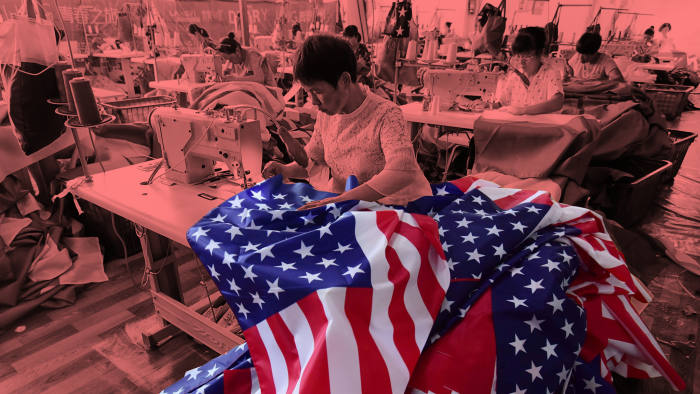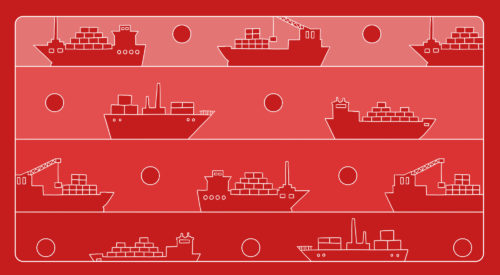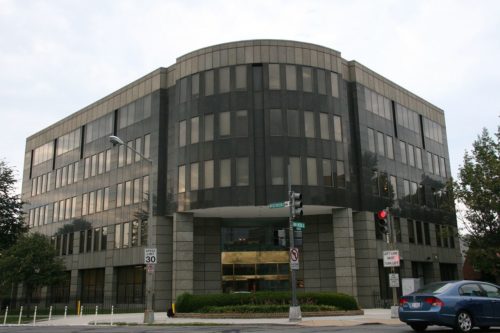At least Trump didn’t ban all Chinese students — trade war, day 89


Within the past 10 days, U.S.-China relations have been shaken, repeatedly and violently. As we have noted repeatedly in recent weeks, the trade war is just one part of a growing confrontation between the two countries. It is tough to keep track, as it is all happening so fast, but it is hard not to describe this as a downward spiral:
- The amount of tariffs more than tripled on September 24 (Access paywall), and tentative trade talks were scorched.
- China accused the U.S. of “trade bullyism” in an extensive government white paper, and said it refuses to negotiate while the U.S. holds a “knife to the throat.”
- Trump accused China of election interference, but provided no evidence of a covert campaign.
- Trump said he “may not be” friends with Xí Jìnpíng 习近平 anymore — although the Chinese leader never said they were friends in the first place.
- China canceled a diplomatic and security dialogue with the U.S., likely due to a variety of factors, as we wrote on Access yesterday (paywall).
Today brings two big stories, of a further bump to U.S.-China relations, and a previously unreported way in which the relationship was nearly totally derailed earlier this year:
- “American and Chinese warships narrowly avoid high-seas collision,” the New York Times reports (porous paywall), describing what the Pentagon called an “unsafe and unprofessional maneuver” in which a Chinese navy ship sailed within 45 yards of an American ship in the South China Sea.
- “US considered ban on student visas for Chinese nationals,” the Financial Times reports (paywall), describing how in the spring of this year, Trump’s immigration adviser Stephen Miller pushed “to make it impossible for Chinese citizens to study in the US.”
- Terry Branstad, the American ambassador to China, and U.S. embassy staff in Beijing, reportedly played an important role in dissuading Trump from throwing into chaos the lives of 350,000 Chinese students in the U.S. — and derailing U.S.-China relations in the process. But Peter “Death by China” Navarro and others “continue to push for a harder stance.”
- For more on the complicated debate around Chinese student visas in the U.S., see this piece in MacroPolo: “Who loses from restricting Chinese student visas?”
Back to trade, the U.S. just signed a rebranded North American Free Trade Agreement, and it takes aim at China. SCMP reports:
A special clause in the new US-Mexico-Canada trade agreement would give Washington a near-veto over any attempt by Canada or Mexico to agree to a free-trade deal with a ‘non-market economy’, in what analysts have said is a major threat to China’s position in the global trading system.
Meanwhile, Patrick Chovanec, the managing director of Silvercrest Asset Management and a longtime China watcher, writes on Twitter that the worst impacts of tariffs are yet to come, but coming soon:
The broader China tariffs that affect either consumer goods, or goods of any kind that don’t have a ready replacement, are only just now starting to come into effect…
I think the gap between extremely assertive tariff rhetoric or much slowing tariff implementation (so far) has lulled us into a false sense of complacency about the potential impact of tariffs on the US economy.
More trade war and U.S.-China relations news:
- Tesla
Tesla sharply accelerates production but China tariffs bite / FT (paywall)
“The US electric carmaker on Tuesday capped a tumultuous seven days by revealing that it had produced 53,239 Model 3s in the last quarter, in line with its targets, as it overcame production problems this year.”
The company also issued a statement that pointed out: “Taking ocean transport costs and import tariffs into account, Tesla is now operating at a 55 per cent to 60 per cent cost disadvantage compared to the exact same car locally produced in China.” - Diplomacy and Taiwan
U.S. weighed penalizing El Salvador over support for China, then backed off / NYT (porous paywall) - American soybean farmers find relief in Taiwan
Taiwan signs deal to buy $1.56 billion in Iowa, Minnesota soybeans / Reuters - Commentary
Opinion: After the trade war, US-China relations will not be the same again / SCMP
“Neal Kimberley says now Beijing recognises that Trump’s tariff moves – though in the name of fair trade – stem from a change in America’s strategic intent, it, too, is rethinking the bilateral relationship. Neither side is likely to want a return to the old status quo.”
‘Easy to start but tough to stop’: Alibaba’s Jack Ma warns against trade wars / SCMP - Cross-border crime
Chinese national jailed in US over space tech smuggling scheme / CNN
“According to prosecutors, between 2013 and 2015 Chen purchased and smuggled numerous sensitive items to China without the proper export license, including components used in military communications jammers and devices used for space communications.” - Global opinion
Donald Trump is trusted less than China’s Xi Jinping and Russia’s Vladimir Putin in Pew global opinion survey / Bloomberg via SCMP
But: “Overall, about 50 per cent surveyed continued to hold favourable views of the US.”
Previously in The China Project’s trade war coverage:
https://thechinaproject.com/2018/10/01/matt-pottinger-quotes-confucius-in-chinese/






